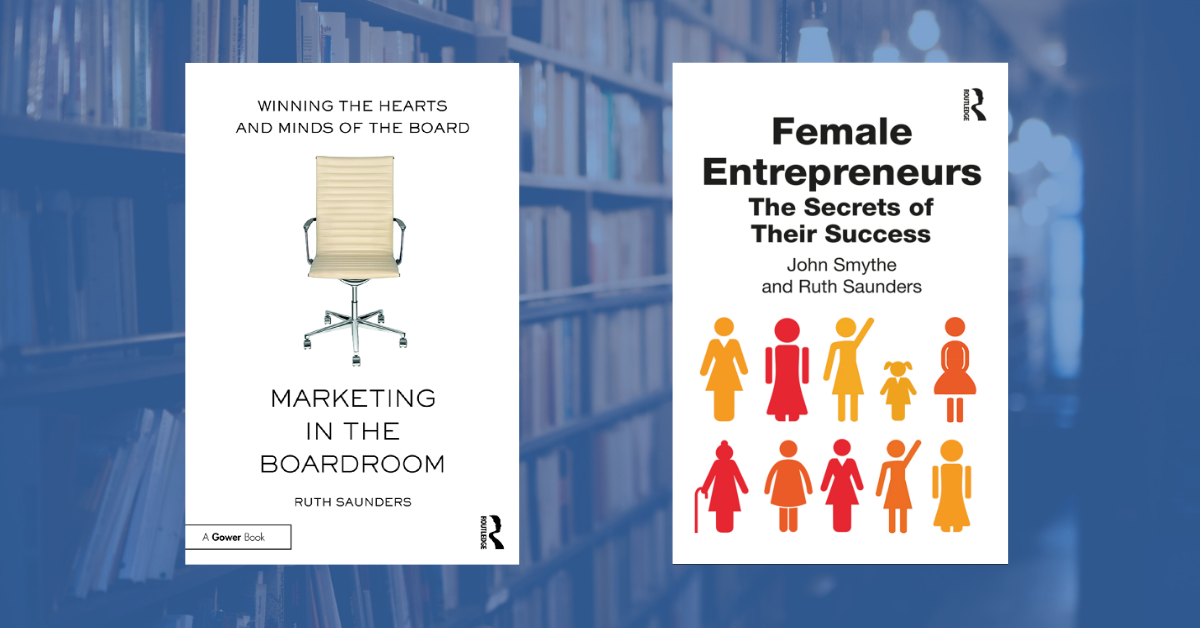
Covid is on track to be the great accelerator, creating a high level of disruption that will change the way we behave forever. So, now more than ever, it’s important for marketers to assess whether their brand is behaving in a trustworthy way today and whether they can successfully build brand trust in a Covid world.
The importance of building brand trust during Covid
McKinsey research shows that during recessions businesses that invest in building and communicating a strong business proposition tend to perform better than those that don’t.
But Covid is taking things one step further. It is the great accelerator that is creating lasting change – both in the way we’re behaving, for example buying more products online, and in the values that matter to us, such as doing the right thing for employees and the wider community.
Because of this, over one-third of people1 have started using a new brand during Covid due to the innovative or compassionate way it has responded to the crisis. On the flip side, 33% of people2 have convinced their family and friends to stop using a brand that they think is acting inappropriately.
When choosing which new brands to buy, 89% of people3 value brands that are helping people navigate through Covid-related challenges, for example:
- Creating products and services that meet the needs of the new norm.
- Reimagining the customer experience for the Covid and post-Covid world.
- Meeting customers where they are today at home and online rather than expecting customers to travel to them.
- Brightening up the mood of the nation through entertainment.
Additionally, 64%4 of people choose brands that are behaving in a socially responsible way such as caring for their employees, the vulnerable and the wider community.
Conversely, 74%5 of consumers refuse to do business with a brand they don’t trust. For example, businesses that are offering a poor customer experience during Covid or are putting profits over people – with 71%6 of people saying that if a brand prioritises profits then it will lose their trust forever.
Some brands are getting it right
There are a number of brands that responded quickly to the crisis to better support their customers. For example, Nationwide was one of the first companies to open branches at special times for vulnerable people. Deliveroo was one of the first to offer no contact delivery options. And if a customer loses their job due to Covid, Hyundai guarantees to cover 6 months of car repayments.
Other companies quickly changed their business model to support customers in their homes. For example, Lloyds Pharmacy hired in 1,500 new staff to home deliver prescriptions. The restaurant chain Cote opened a home delivery service and used tightly targeted geo-based social media to advertise their service to local households. The wine company, C K Mondavi, runs virtual wine tastings and food pairings to inspire its customer base.
Some went out of their way to care for their employees. For example, Timpsons kept 5,500 employees on full pay whilst shops were closed. Brewdog’s founders sacrificed their salaries. And Fullers didn’t seek rental payments from their tenanted pubs.
Others went out of their way to support society. For example, Pret a Manger offered NHS staff free drinks and 50% off. Spotify ran a fundraising campaign for struggling musicians. And JLR, Dyson and Burberry volunteered to manufacture ventilators and PPE.
A last group brightened the mood of the nation by entertaining their customers. Nike launched digital tools and devices to help people stay fit and active indoors with the line: “If you ever dreamed about playing for millions around the world – now’s your chance.” Budweiser relaunched its Whassup campaign encouraging people to “Check in on friends and family in Covid”. And Guinness ran a St Patrick Day’s ad promising people that “We’ll march again”.
Other brands are getting it very wrong
In contrast, some brands have misread the mood of the nation.
For example, some have offered poor customer experience during Covid. We all know of brands that have closed their call centres to non-vulnerable customers making it tough to resolve issues, for example Sky. But others such as Regus have charged rents to customers even though they couldn’t access their offices. And RyanAir charged customers £80 when forced to rebook a flight. More shockingly, Travelodge ousted some of its residents, including homeless families and key workers, onto the street.
Others have shamelessly prioritised profits over people. For example, Sports Direct argued that sportswear was essential with the hope of keeping their stores open during lockdown. Tesla kept factories open and forced employees to work. And EasyJet staff had to take 3 months’ leave whilst shareholders enjoyed a £174m dividend.
What does this mean for marketers?
It’s critical that marketers work now to ensure that their brand is behaving in a trustworthy way today – and is set up to work well in the post Covid world. For example:
- Creating products and services that meet the needs of the new norm.
- Reimagining the customer experience for the Covid and post-Covid world.
- Finding ways to support customers better at home and online.
- Brightening up the mood of the nation through entertainment.
- Better supporting employees and the wider community.
Similarly, it is important to communicate your brand proposition and values by:
- Assessing what you’re doing today and eliminating any bad behaviours that might erode trust.
- Taking time to hone your brand proposition and narrative and conveying it clearly in everything you do.
- Building a strong, consistent presence across all communication touchpoints.
Some final thoughts
There is a lot of disruption right now – but with disruption comes opportunity.
For businesses, there is the opportunity to reposition for the new norm. For example, by offering new products or routes to market that will work better in the post Covid world.
As the CEO of Intel said: “Bad companies are destroyed by crises, good companies survive them, great companies are improved by them.”
For individuals, there is the opportunity to reposition yourself to do something you love. On the one hand, disruption is creating more entrepreneurs than ever before with many people taking their first steps to setting up a business. On the other hand, companies are looking for inspirational people to drive inspirational change. So, it’s a good time to be:
- Thinking about what you really want to do.
- Honing your personal brand.
- Networking far and wide to make new connections and see what’s out there.
As Richard Branson said: “There is no greater thing you can do with your life and your work than follow your passions – in a way that serves the world and you.”
Sources:
1. Edelman Brand Trust Barometer, 2020
2. Edelman Brand Trust Barometer, 2020
3. Good. Must. Grow, Conscious Spending Index
4. EY Research
5. Edelman Brand Trust Barometer, 2020
6. Edelman Brand Trust Barometer, 2020
The author
Ruth Saunders uses her 30 years of experience as a strategy consultant at McKinsey, marketer at P&G, advertising planner at Saatchi & Saatchi and market researcher at Mars Inc, to help clients be ‘On Point’.
She is a marketing and branding consultant, trainer, speaker and coach – and author of two books:
1. “Marketing in the Boardroom: Winning the Hearts and Minds of the Board”
2. “Female Entrepreneurs – The Secrets of their Sucess“
Follow Ruth on Twitter.


Recent Comments